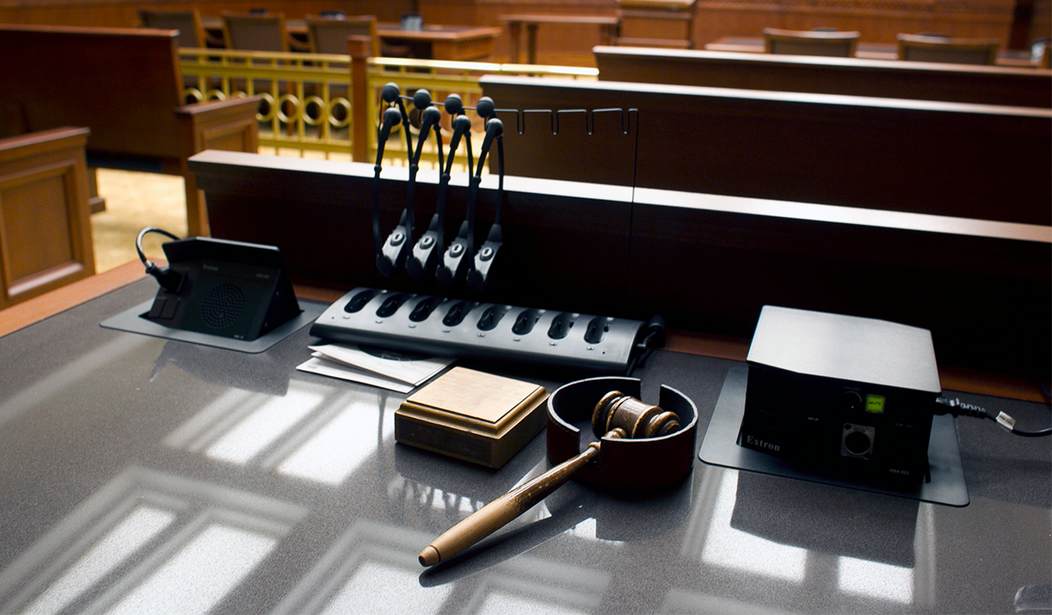A disturbing report showed up in the Associated Press over the holiday weekend related to the ongoing trials of everyone involved in the January 6, 2021, Capitol Hill riot or, in some cases, anyone who was simply in the vicinity. We already knew that the Justice Department has been combing through the private records of people who weren’t even involved and searching Bank of America’s sales records for anyone who made any sort of purchase in the vicinity. There have already been more than 1,000 cases brought forward and they’re hoping to at least double that number in the future. We’ve covered dozens of those cases here where people received ludicrously harsh sentences for what amounted to little more than trespassing. But now, the Justice Department is going even further. They are investigating fundraising sites that have raised money for any J6 suspects and asking judges to impose extra fines to prevent the accused from keeping the money that was raised.
Less than two months after he pleaded guilty to storming the U.S. Capitol, Texas resident Daniel Goodwyn appeared on Tucker Carlson’s then-Fox News show and promoted a website where supporters could donate money to Goodwyn and other rioters whom the site called “political prisoners.”
The Justice Department now wants Goodwyn to give up more than $25,000 he raised — a clawback that is part of a growing effort by the government to prevent rioters from being able to personally profit from participating in the attack that shook the foundations of American democracy.
An Associated Press review of court records shows that prosecutors in the more than 1,000 criminal cases from Jan. 6, 2021, are increasingly asking judges to impose fines on top of prison sentences to offset donations from supporters of the Capitol rioters.
The main target of the Justice Department is the fundraising site GiveSendGo, which bills itself as “The #1 Free Christian Fundraising Site.” The site allows accounts for J6 suspects, while others such as GoFundMe do not. The AP notes that prosecutors generously say there is “nothing wrong” with asking for help with legal fees, but some of the people engaging in fundraising have used court-appointed attorneys.
One example they cite is the case of Markus Maly of Virginia. He is due to be sentenced for participating in the riot this month. It turns out that he raised $16,000 from a fundraising site. Prosecutors specifically requested an additional fine of $16,000, citing the fundraising site as the reason, not anything related to Maly’s actions on January 6th. They further note that Maly made use of a public defender and did not owe any legal fees.
But Maly never said that he was operating a “legal defense fund.” His fundraising effort simply said he was hoping to bring in money “to help his family.” That’s not illegal.
This is completely wrong and this approach should be challenged in court. First of all, even if you have a court-appointed attorney, you can still run up a lot of expenses while fighting a serious federal charge in court. Most people won’t be able to work while going through the process.
But that’s not really the point either. A crime either carries the possibility of a fine being imposed upon conviction or it doesn’t. If it does, prosecutors will request a fine of a given amount and the judge may or may not include it in the sentence based on the specifics of the crime. Neither being accused nor convicted of a crime bars an individual from being able to make money, even if the money comes via donations from willing supporters.
Setting up a fundraising site or having one set up for you by someone else is not a crime. The Justice Department has no business investigating the records of GiveSendGo unless the company has itself been accused of a crime. (I see no record of any such accusation.) Seeking vastly inflated fines during sentencing based on nothing other than whether or not a defendant had a fundraising account is a malicious prosecutorial practice and those engaged in doing so need to be held accountable.








Join the conversation as a VIP Member